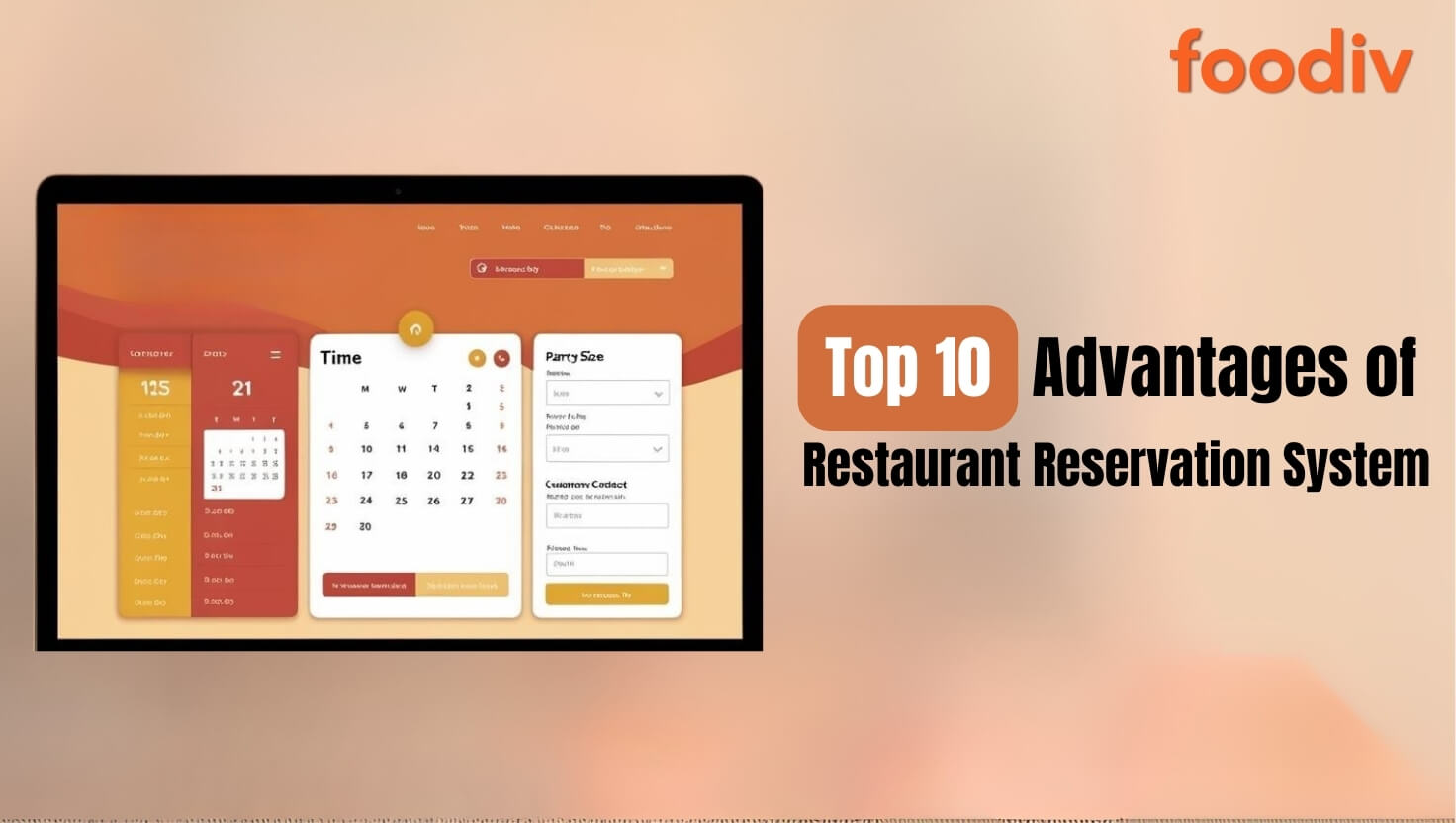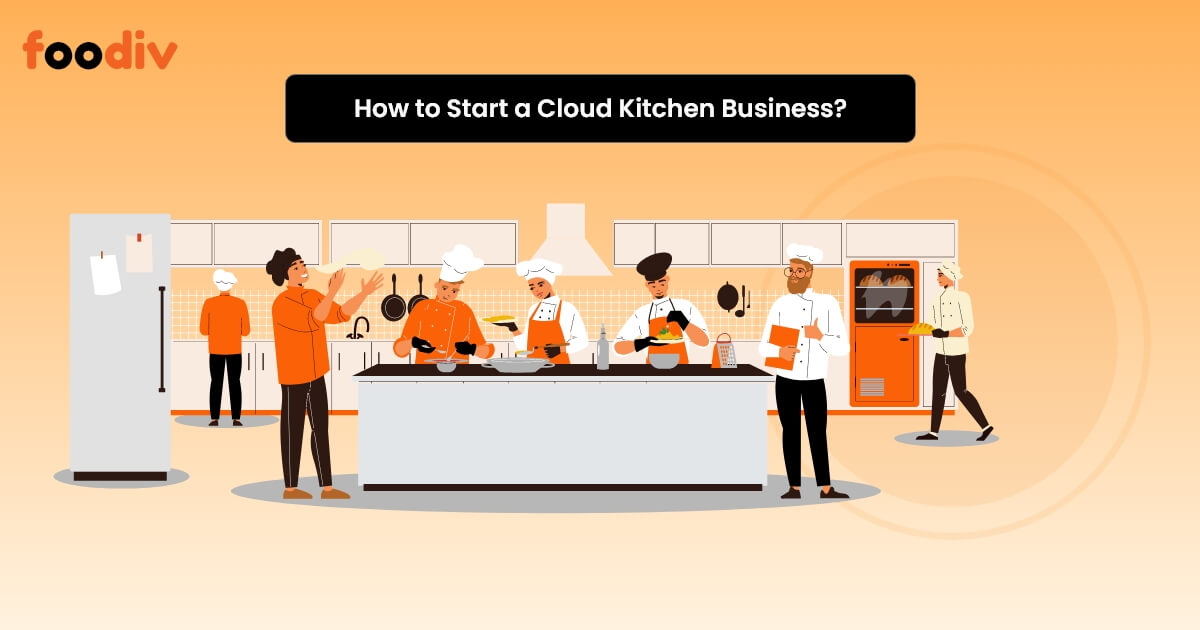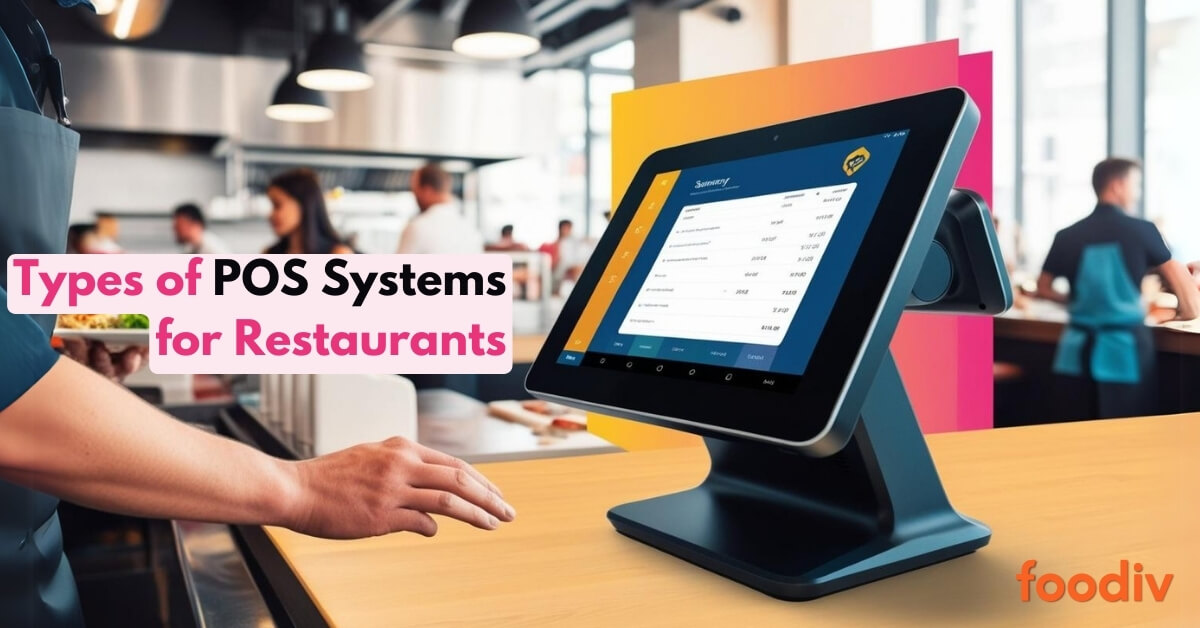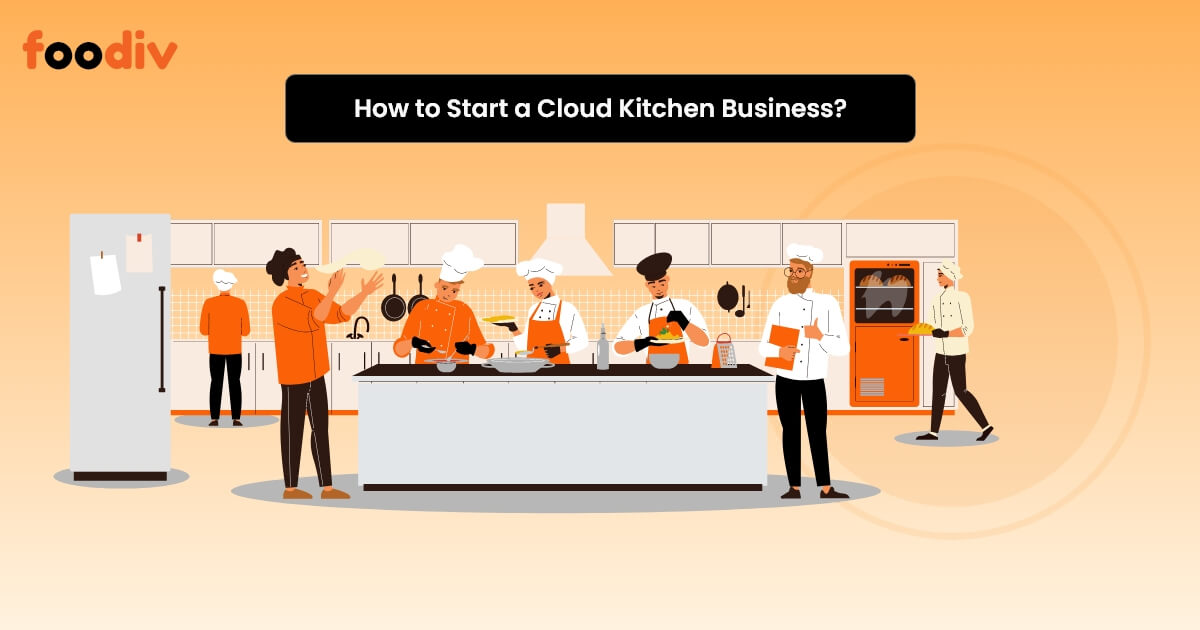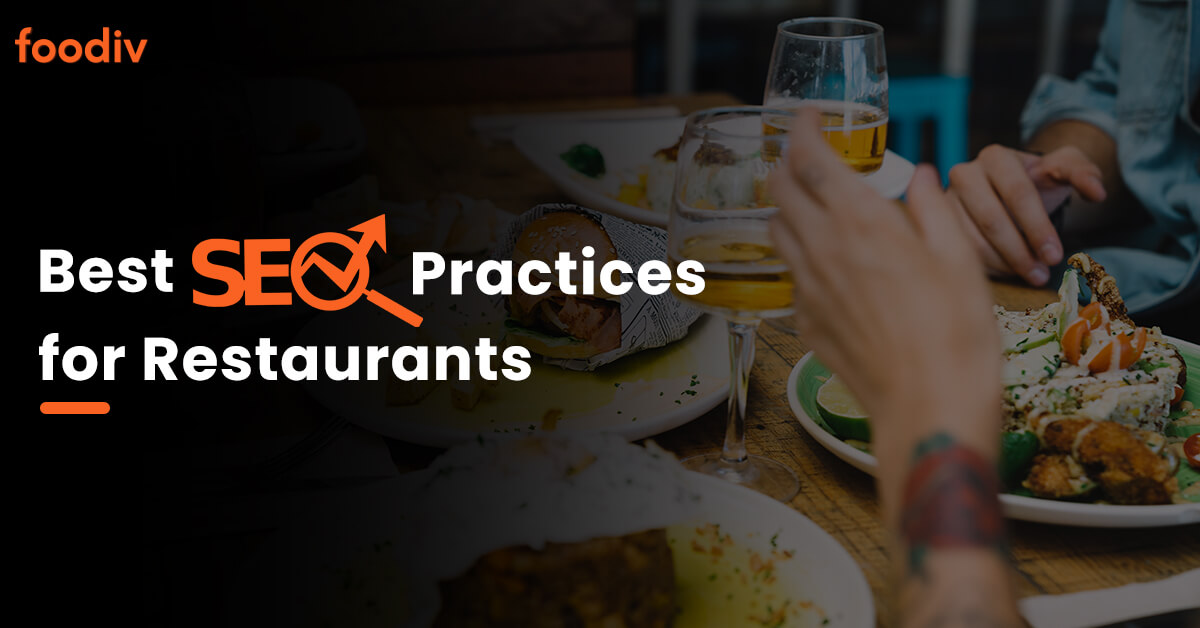
Quick Summary: Building a website for the restaurant is just one step towards many to achieve your business success in the food and beverages industry. An SEO for a restaurant is another step that you need to cross. And it has to be strategically defined to connect the right audience with your initiatives and offerings. This article brings you the best SEO practices for a unique restaurant and helps you grab the user’s attention with minimal effort. Let’s explore how.
Are you running a restaurant online? Is your restaurant visible to your users or people searching for food, lunch, and dinner online? You need to explore SEO tips for restaurants and implement them strategically and effectively. Every online business can only imagine success by embracing SEO best practices. The restaurant sector is no different. In fact, a good digital marketing strategy is almost the only solution for restaurant businesses to stay profitable and achieve business success.
So, what do you do?
You must think about SEO marketing for restaurants and create a practical restaurant SEO roadmap. So, if you have made your website, stick around this article, explore the free SEO tips for restaurants, and get started with better marketing for your online restaurant business.
In this article, you will find everything about SEO for restaurants, such as;
After reading this article, you can create effective marketing strategies for your restaurant, albeit we have separately discussed the best digital marketing strategies for restaurant details in our blog written earlier. Besides, the article gives you a detailed view of what benefits you would get with SEO and how to do it. So, let’s explore them one by one.
What is SEO for a Restaurant?
SEO stands for “search engine optimization,” which refers to optimizing restaurant websites, so users can easily search in the search engines like Google,bing etc… It’s the process of improving the ranking of a website.
For a restaurant, SEO involves optimizing its website and online presence to increase its visibility to people searching for restaurants in the area. This can be achieved through a variety of tactics, such as;
- Optimizing the website’s content and structure to make it more attractive to search engines
- Building high-quality backlinks to the website
- Ensuring that the website is mobile-friendly and easy to use
The goal of SEO for a restaurant is to increase the website’s ranking in search engine results, which can lead to more traffic to the website and ultimately more customers for the restaurant.
Benefits of using SEO best practices for your restaurant
Following SEO best practices, you can bring a lot of benefits to your online businesses of all types, not to mention the restaurants. Before you connect your marketing agency or build a team for marketing, the one question that you might ask yourself is “Why is SEO important for restaurants?” In the online or digital world, SEO is the lifeline that connects you and your business to potential customers. Understanding the SEO tips for restaurants will not just benefit you to keep your business thriving but also give you a competitive edge.
It’s not just about improving the ranking of a website on search engines like Google or others but also about getting your purpose served, whether it attracts customers for dine-in or helps them place an order online. Besides there are several reasons why restaurants must invest in SEO:
- Local SEO: Local SEO for restaurants is crucial, given the opportunities it offers to businesses. Optimizing with Local SEO helps to increase your restaurant’s visibility to people searching for restaurants in your area. This is especially important for restaurants, as many people search engines to find local businesses when looking for a place to eat.
- Online Visibility: With the increasing number of internet users to find restaurants, your restaurant must have a robust online presence. By optimizing your website for search engines, you can make it more likely that people will find your restaurant when searching for places to eat online.
- Increased Traffic: By ranking highly in search engine results, you can improve your website’s traffic, leading to more customers for your restaurant.
- Competitive Advantage: With the increasing number of restaurants online, it is crucial to maintain a strong online presence that can stand out from the competition. Investing in SEO can give your restaurant a competitive edge over others in your area.
- Cost-effective marketing: SEO can be a cost-effective way to market your restaurant, as it allows you to reach potential customers who are actively searching for places to eat.
How to Do SEO for Restaurants
We assume that you will have a dedicated marketing team to do SEO for your website, though as a restaurant owner, you should know what SEO is and learn the best SEO tips for restaurants. Having understood SWO and learning the tips, you must understand how to do SEO for restaurants. There are several steps you can take to optimize your restaurant’s website for search engines:
Begin with the Keyword Planning Roadmap
The next step you need to take is to have a complete roadmap planned for keywords. Here are some tips on how to do it.
Keyword research
Keyword research is an essential part of SEO for a restaurant, as it helps you identify the terms and phrases people use to search for restaurants in your area. This can help you to optimize your website’s content and metadata with the most relevant and effective keywords. Here are some steps you can follow to conduct keyword research for your restaurant:
- Make a list of relevant keywords: Start by making a list of keywords that are related to your restaurant, such as the name of your restaurant, the types of food you serve, your location, and any unique features or offerings you have.
- Use a keyword research tool: Several tools can help you identify the most popular and relevant keywords for your restaurant. Some popular options include Google’s Keyword Planner, SEMrush, and Ahrefs.
- Look for long-tail keywords: Long-tail keywords are more specific and less commonly searched than short-tail keywords, but they can still drive targeted traffic to your website. For example, “best Italian restaurant in downtown Los Angeles” is a long-tail keyword, while “Italian restaurant” is a short-tail keyword.
- Consider local keywords: Including local keywords in your website’s content and metadata can help to improve its ranking for local search queries. For example, “best seafood restaurant in Miami Beach” is a local keyword.
- Use relevant, local keywords: Including relevant, local keywords in your website’s content and metadata can help to improve its ranking for local search queries.
Incorporate your keywords into your website’s content and metadata
Once you have identified your keywords, ensure to include them in your website’s content, titles, headings, and metadata in a natural and relevant way. This will help to improve your website’s ranking for those keywords.
Define Your SEO & Content Strategies
Content strategy refers to the planning, development, and management of content—often for digital media. A content strategy is an effective part of SEO for restaurants, involving creating a plan for creating and sharing valuable, relevant, and consistent content to meet the needs of your target audience and achieve your business goals. It involves deciding on the types of content that will be created, the channels through which it will be distributed, and the frequency with which it will be published.
A content strategy may also include tone, style, and formatting guidelines to ensure that all content is consistent and aligns with the organization’s overall goals and brand identity. Content strategies are often developed as part of a more extensive marketing or communications plan and can help organizations to reach and engage their target audience effectively.
As far as SEO strategies for the restaurant are concerned, they involve the following factors;
- On-page optimization: Optimizing the various elements, such as the title tags, headings tags, and body content,image optimization, making schema of your website’s pages, makes them more attractive to search engines.
- Off-page optimization: Off-page optimization involves local business listing, profile creation, building high-quality backlinks from other reputable websites to your own. This can help to improve your website’s credibility and ranking.
- Content marketing: Content marketing involves creating and distributing valuable, relevant, and consistent content to attract and retain a clearly defined audience. This can include creating blog posts, social media posts, and other content showcasing your restaurant and its offerings.
- Optimize your website’s content: Make sure that your website’s content is relevant, informative, and keyword-rich. This will make it more attractive to search engines and help to improve your ranking.
- Use high-quality images: Adding high-quality, visually appealing photos to your website can attract potential customers and improve the user experience.
Keep Your Website Updated with the Latest Content/Blog
Keeping your restaurant website updated with the latest content is essential for attracting and retaining customers and maintaining a strong online presence. Search engines favor regularly updated websites with fresh, relevant content, so make sure to add new content to your website regularly. Here’s why you must keep your website updated with the latest content or blog.
Local Search & Local SEO Optimization
Local search is the use of specialized Internet search engines that allow users to submit geographically constrained searches against a structured database of local business listings.
Whereas, Local SEO optimization is the process of optimizing your online presence to attract more business from relevant local searches. This includes optimizing your website and online directories to be visible in local searches and increasing your online reputation through positive reviews and high-quality content.
Local SEO optimization aims to increase your business’s visibility in local search results, making it easier for customers to find you when they search for products or services in your area.
- Claim your Google My Business listing: This will allow you to manage your restaurant’s online presence on Google, including its listing in Google Maps.
Make Your Website Mobile-Friendly
More and more people are using their smartphones to search for and interact with businesses online. If your restaurant website is not mobile-friendly, it will be difficult for these users to access and use your site, which could lead to lost customers. Here’s how a mobile-friendly restaurant website helps you grab the benefits.
- Improved user experience: A mobile-friendly website is easier to use and navigate on a small screen, which leads to a better user experience for your customers.
- Better search engine rankings: Google and other search engines give higher rankings to mobile-friendly websites in their search results. This means that if your website is mobile-friendly, it is more likely to appear at the top of search results, leading to more traffic and customers.
- Enhanced customer loyalty: A positive user experience on your restaurant website can increase customer loyalty. If your website is not mobile-friendly and customers have difficulty accessing information or making reservations, they may choose to go to a different restaurant.
In short, having a mobile-friendly website is essential for any business. Still, it is significant for restaurants since people often use their smartphones to search for and book tables at restaurants.
Engage With Customers on Social Media
Integrating social media into your SEO strategy is a pivotal step for restaurants. It’s not just about boosting your online presence, but also about engaging with your customers. By leveraging quality social media marketing strategies, you can effectively promote your restaurant, including menus, run promotions, and more on platforms like Instagram, Facebook, Twitter, TikTok, Tumblr, Snapchat, and others. Start by establishing robust social media profiles across all platforms, linking them to your website, and posting engaging content that encourages customer interaction.
Link Building and Review Generation
Link building is a practical part of SEO that sends signals to Google and other search engines about your website from third-party sources. It can be other websites, influencers, local food bloggers, and other sites where you can get backlinks. Backlinks improve website credibility, and search engines love to promote credible websites. You may also consider encouraging your satisfied customers to leave reviews and testimonials across different channels and platforms, like Google My Business (GMB), Yelp, TripAdvisor, and others. Local SEO is the best thing to add value to your website and help it rank at the top across search engines.
Optimize for Voice Search
90% of people believe that voice search is helpful for them to get their things done online. There’s no difference between using voice search to find the best restaurants for food and searching for hotels, restaurants, bars, or cafes nearby. People love using SIRI, Alexa, and Google Assistants, and they will be crucial for your website if they are optimized and enabled for voice search.
Utilize High-Quality Visuals and Videos
Something visually appealing attracts the users more. You can implement high-quality visuals and videos on your website to help users explore your food products, menus, and other stuff more precisely. Similarly, you can also put some behind-the-scenes videos, such as food preparation, recipes, dishes, ambiance, and others, which will keep your users engaged with the restaurant website. These videos will attract your users and allow them to know you better, while videos like virtual tours, chef introductions, and others will help improve CTR.
Enhance User-Generated Content (UGC)
When your satisfied customers leave feedback and reviews, it’s not just a sign of their satisfaction, but also a powerful tool for your SEO strategy. Actively engaging with these reviews and featuring them on social media platforms can significantly boost your credibility and local search ranking. Positive reviews send a strong signal to search engines and are likely to promote your website when someone searches for products relevant to yours, giving you confidence in the effectiveness of your SEO efforts.
List Your Restaurant on Review Sites and Encourage Reviews
Review sites, such as Yelp and Google, can help increase your restaurant’s visibility to potential customers. When people search for restaurants in their area, these sites often appear near the top of the search results, so it’s essential to have a presence on them. Therefore, listing your restaurant on review sites and encouraging reviews is crucial in attracting and retaining customers, as well as maintaining a strong online presence.
Schema and Microformatting
Schema and micro formatting are ways to mark up your website’s content to make it easier for search engines to understand and interpret. In addition, they provide additional context and meaning to the content on your website, which can help improve its visibility in search results.
Schema: Schema is a standardized markup language used to annotate and describe the content on your website. It allows you to add specific tags to your website’s HTML code that provide additional information about the content, such as the type of content (e.g., recipe, event, product), the associated data (e.g., ingredients, date, price), and any relationships to other content (e.g., reviews, ratings).
Microformatting: Microformatting is a similar concept, but it uses HTML classes and other attributes to add meaning to specific content on your website. It is often used to mark up particular types of content, such as events, reviews, and contact information.
Both schema and microformatting can help improve the visibility of your website in search results by providing additional context and meaning to the content. This can help search engines understand what your website is about and how it is relevant to user’s search queries, leading to higher rankings in the search results.
Final Thoughts
In conclusion, SEO is important for restaurants looking to attract and retain customers through their online presence. By implementing the guides and other SEO strategies, restaurants can improve their online presence and attract more customers through search engines.
Foodiv, which offers an online ordering system for restaurants, is dedicated to helping startups keep their efforts successful through highly researched content. You can contact us for technical or non-technical support; we are happy to help.


